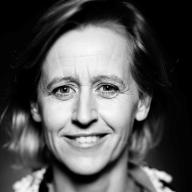 \
&
Contact us
\
&
Contact us
 \
&
Contact us
\
&
Contact us
It supports all stages of innovation from R&D on the scientific underpinnings of breakthrough technologies, to validation and demonstration of breakthrough technologies and innovations to meet real world needs, to the development and scaling up of start-ups and small and medium-sized enterprises (SMEs).
The funding and support consists of three main funding schemes:
In each funding scheme, the direct financial support to innovators is augmented with access to a range of Business Acceleration Services. The three main EIC instruments offer both bottom-up calls and calls with predefined thematic priorities (challenges). In addition to these instruments there are the EIC Prizes, which reward innovative solutions offered by companies/organisations for pre-defined societal challenges or specific target audiences, such as women innovators, innovative cities, public or private procurers or social innovation.

magali.parent@vlaio.be
+32 2 432 42 42

Ria.debreucker@vlaio.be
+32 2 553 13 77
Find the contact info on the site of WEWIS
The National Contact Points (NCPs) provide support, guidance, and practical information to potential applicants, helping them navigate funding opportunities and application processes.
The Programme Committee (PC) members represent their country in decision-making about the work programmes, evaluate implementation, and provide strategic input on priorities and calls.
Infosheets contain edited content on aspects related to this programme. They are reviewed at least yearly.
Related links are easy pointers towards external information. We curate the list, but are not liable for the destinations.
Documents contain additional information related to this programme, and are similar to related links.
Bio Base Europe Pilot Plant coordinated the Glaukos project, which answered the call topic published in 2019 of Horizon 2020 Framework Programme ‘Develop bio-based fibres and/or functional molecules to improve the performance of textile products’ under the Framework of the Bio-based Industries Joint Undertaking (BBI JU). The consortium partners took up this challenge by valorising industrial side streams and setting up a circular approach to the textile industry.